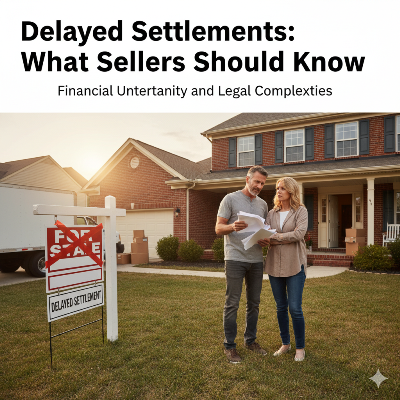Nobody ever wants to receive a notice of foreclosure on their home, but eventually, you may find yourself in a position to receive one. Your initial feeling may be panic, as you try to figure out where you’re going to live and what you’re going to do, but it’s important to realize that you have many options for dealing with a foreclosure. And in many cases, you’ll ultimately be able to keep your home.
Try to Understand the Situation
Try not to panic. Instead, read the foreclosure notice carefully and try your best to understand the situation. Chances are, you either knew this was coming or suspected that you were in financial trouble.
Typically, mortgage lenders take many actions before issuing a notice of foreclosure, including communicating with you directly about the issue. Was this a result of failing to pay your mortgage payments? How long have you known this was coming?
If you have any questions about the foreclosure notice, you can call your lender and try to talk it out. However, you should avoid taking any deliberate actions until you feel confident you’re making the right decision.
Talk to a Lawyer
Before you commit to any action, talk to a foreclosure lawyer. Your foreclosure lawyer is going to help you understand your situation. They can analyze the notice of foreclosure, look into the details of your mortgage, help you understand the law, and ultimately advise you as to what your best options are. They’re a trained professional whose entire job is helping people like you navigate situations like these, so find a lawyer you trust and put faith in their recommendations.
Depending on the situation, your lawyer may advise you to respond to the notice of foreclosure in one of several different ways, or they may help you understand your viable options for escaping this precarious situation.
Process the Foreclosure Timeline
Depending on where you live, the timeline for a foreclosure may vary slightly. But there are some typical steps in the process you should work to understand.
· Advanced notice. In most cases, your mortgage lender will reach out to you several times before ever issuing a notice of foreclosure. In some states, this is a legal requirement.
· A notice of foreclosure. In nearly all cases, the lender must send you a notice of foreclosure before the legal process of foreclosure begins. This gives you an opportunity to reinstate or pay off your loan, or oppose the foreclosure in court.
· Court processing and opposition. As with most legal issues, it takes time to process a foreclosure. You’ll typically have at least a month from the notice of foreclosure until the bank sells the house. If you respond to the notice of foreclosure and oppose it in court, you can delay this timeline even further. You may also be able to stop the foreclosure before the sale.
· The sale. Once a final judgment is reached, the home will be listed for sale.
Respond to the Notice of Foreclosure
In nearly all cases, it pays to respond to the notice of foreclosure. That’s because if you do not respond, the judgment will be in the lender’s favor by default. If nothing else, this action can buy you extra time to make alternative plans. Make sure to talk to your lawyer before you commit to this action, however.
Loan Reinstatement
A loan reinstatement is an option that allows you to return to your previous status quo, owning and living in the house while making regular monthly mortgage payments – but you can only achieve this if you catch up on payments. In many cases, you’ll need to pay all your overdue payments, as well as any late fees, to completely catch up on your mortgage.
Loan Payoff
Alternatively, you can pay off the entire loan. If you pay off everything you owe, you can become the full owner of the house, and the foreclosure will no longer be relevant. Coming up with the cash for this, however, is challenging for most homeowners.
Possible Defenses
If you decide to oppose the foreclosure in court, these are some of the most reliable possible defenses:
· A mistake by the mortgage company. In some cases, the notice of foreclosure is issued by mistake. A clerical error or missed payment may be responsible for the confusion. If this is the case, the foreclosure process will grind to a halt.
· Paperwork mistakes by the mortgage holder. The current mortgage holder must prove ownership. If there’s any mistake in the paperwork that demonstrates ambiguity or doubt in this area, it could work in your favor.
· Broken state laws. Each state has specific laws for how mortgage lenders can handle foreclosure. If your lender breaks any of these laws, they may find themselves unable to move forward successfully. That said, they may be able to begin the process anew.
· Broken federal consumer protection laws. Similarly, if your mortgage lender breaks any federal consumer protection laws, they may not be able to move forward with foreclosure.
With the help of your foreclosure lawyer, and proper adherence to the law, you may be able to keep your house despite the notice of foreclosure. There are several options for avoiding, delaying, and combating foreclosure in court – so it’s mostly a matter of finding which option is most viable for your unique situation.






